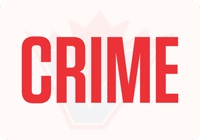TO ensure B.C.’s most vulnerable – including people on income or disability assistance and low-income seniors – do not encounter additional barriers during the COVID-19 crisis, the Province announced on Thursday it is implementing a series of temporary supports and supplements.
“We are putting in place measures that complement the federal crisis measures to support our most vulnerable populations and ensure they do not fall deeper into poverty as a result of COVID-19,” said Shane Simpson, Minister of Social Development and Poverty Reduction. “This is a stressful time for everyone, but for those struggling to put food on the table at the best of times, it is important that we ensure there are no additional barriers to get what they need to keep themselves and their families safe and healthy.”
For people in B.C. currently receiving income assistance or disability assistance, the Province will temporarily exempt federal employment insurance benefits, including the new $2,000 Canada Emergency Response Benefit (CERB). These payments will be fully exempted for the next three months so people receiving income assistance and disability assistance in B.C. will benefit from these new emergency federal support programs, without any reductions to their monthly assistance payments.
For everyone on income assistance or disability assistance who is not eligible for the emergency federal support programs, including the CERB, the Province will provide an automatic $300-monthly COVID-19 crisis supplement for the next three months. This supplement will also be provided to low-income seniors who receive the B.C. Senior’s Supplement and recipients of income assistance or disability assistance who reside in special care facilities.
With the current provincewide suspension of BC Transit and Translink bus fares, the Province will also provide all BC Bus Pass Program users receiving income assistance and disability assistance with the $52 Transportation Supplement for the duration of the fare suspension. This will be included on the next cheque and for each subsequent month while the fare suspension remains in place.
Existing Compass passes under the BC Bus Pass Program will not be cancelled and will remain active during this time, so people will not need to reapply for bus passes in the future. This will also ensure people can still use SkyTrain and SeaBus services that are still charging fares. There is no change for eligible low-income seniors who will continue to have an active bus pass provided by the BC Bus Pass Program.
These interim measures further complement government’s $5-billion COVID-19 Action Plan to provide income supports, tax relief and direct funding for people, businesses and services.
To further support vulnerable people, the Province recently provided a $3-million emergency grant to Food Banks BC to distribute among food banks provincewide. The grant will support immediate needs to buy and distribute food, pay employees and cover other costs essential to the delivery of their food programs.
Recognizing that vulnerable people in different circumstances face distinct risks, the provincial Vulnerable Population Working Group continues to identify, assess and address the immediate challenges faced by five specific groups – people living on the street, people experiencing homelessness living in encampments, shelter residents, tenants of private single-residence occupancies and tenants in social and supportive housing.
This working group includes representatives from the ministries of Municipal Affairs and Housing, Social Development and Poverty Reduction, Indigenous Relations and Reconciliation, Mental Health and Addictions, Children and Family Development, Health, Public Safety and Solicitor General, Finance, Attorney General, as well as Emergency Management BC, the City of Vancouver, the Office of the Provincial Health Officer, BC Centre for Disease Control, First Nations Health Authority, Provincial Health Services Authority, regional health authorities, BC Housing and Community Living British Columbia.










